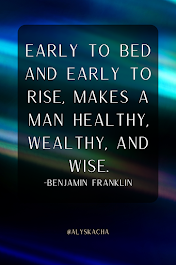Sleep, often overlooked, is a huge factor in overall health and well-being. Its more then just a body at rest! Sleep helps better cognitive function, emotional stability, and physical health. Understanding the individualized nature of sleep and considering various factors like environment, technology, air quality, cleanliness, meal timing, REM cycles, and stressors is so important in promoting restorative sleep. This post will explore the intricacies of sleep shedding light on personalized approaches to optimize this important aspect of our lives.
Sleep is not a one-size-fits-all endeavor; it demands a tailored approach to cater to individual needs. Scientific studies emphasize the importance of understanding one’s chronotype, determining whether they are naturally inclined towards being an early bird or a night owl. This knowledge aids in creating a sleep routine that aligns with the body’s natural circadian rhythm, enhancing the quality and duration of sleep.
The pervasive use of technology has become a potential disruptor to sleep. Scientific literature details the impact of blue light emitted by screens on melatonin production, affecting sleep initiation. Establishing technology-free zones before bedtime and adopting blue-light-blocking strategies contribute to better sleep hygiene. Scientifically substantiated research serves as a guide in understanding the intricate relationship between technology use and sleep disturbances.
Scientific studies affirm the importance of meal timing and food choices in sleep regulation. Consuming heavy meals close to bedtime can hinder sleep quality. Conversely, incorporating sleep-promoting foods, such as those rich in tryptophan and magnesium, can positively influence sleep. Scientifically backed nutritional strategies provide actionable insights for individuals seeking to optimize their sleep through dietary adjustments.
Daily stressors and anxiety have a profound impact on sleep quality. Scientific articles delve into the intricate relationship between stress hormones and disrupted sleep patterns. Implementing stress management techniques, such as mindfulness and relaxation exercises, is crucial in breaking the cycle of stress-induced sleep disturbances. Scientifically validated strategies offer individuals tangible tools to address the connection between mental well-being and sleep.
I personally have black out curtains in my bedroom, some low lighting devices, my overhead fan on to keep me cooler in the night, and a silk eye mask (simple Non-velcro band, blackout, nothing crazy). I also pack on the blankets so that I can add or subtract them from the equation that seems to be sleep hygiene. Another helper is melatonin and magnesium supplements. I love the Goli supplements out there so I'll link an awesome supplement that has both of these as well as Vitamin D. So many people in this world are deficient in Vitamin D it's crazy!
Sleep is a multifaceted aspect of our lives that demands nuanced attention. The importance of adopting a personalized approach, considering environmental factors, managing technology use, understanding dietary influences, and addressing stressors is underscored by scientific research. By integrating these evidence-based insights, individuals can embark on a journey towards not just longer but more restful and rejuvenating sleep. As scientific literature continues to unveil the complexities of sleep, the power to optimize this essential component of well-being lies in the hands of those willing to prioritize their sleep health.










Comments
Post a Comment